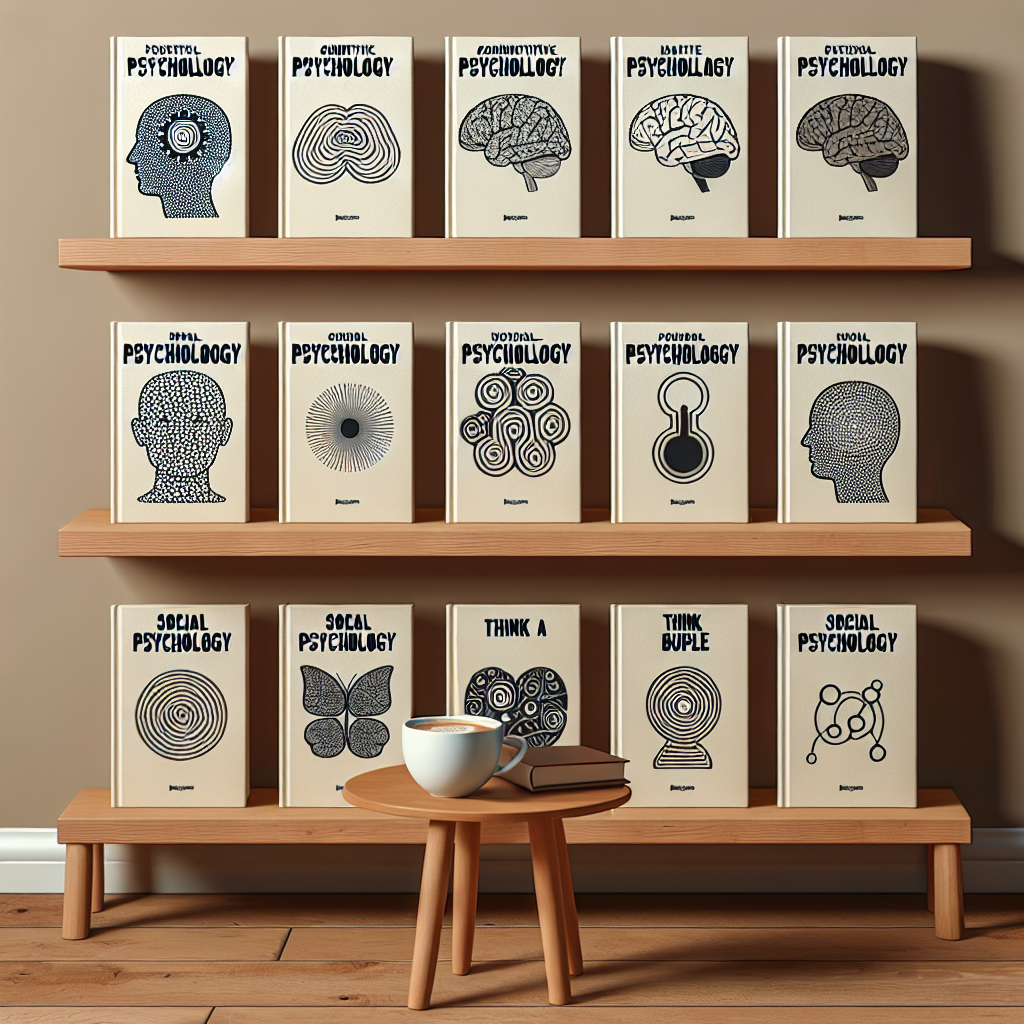As an Amazon Associate I earn from qualifying purchases.
12 Insightful Books About Psychology

Psychology, the study of the mind and behavior, has fascinated scholars, practitioners, and the general public for centuries. Its complex theories and principles have been dissected and discussed in countless books, offering insights into human nature, thought processes, and the myriad ways in which these elements influence our lives. From groundbreaking works that have shaped the field to contemporary studies shedding light on the human condition, the following list of 12 insightful books about psychology provides a comprehensive overview of this dynamic discipline.
1. “Thinking, Fast and Slow” by Daniel Kahneman
Nobel laureate Daniel Kahneman explores the two systems that drive the way we think. System 1 is fast, intuitive, and emotional; System 2 is slower, more deliberative, and more logical. Kahneman delves into the impact of these systems on our decisions, offering profound insights into how we can make better choices in our personal and professional lives.
2. “Man's Search for Meaning” by Viktor E. Frankl
This seminal book by psychiatrist Viktor E. Frankl chronicles his experiences as a concentration camp inmate during World War II and describes his psychotherapeutic method, which involved identifying a purpose in life to feel positively about and then immersively imagining that outcome. Frankl's work is a testament to the resilience of the human spirit in the face of unimaginable suffering.
3. “The Interpretation of Dreams” by Sigmund Freud
As the founder of psychoanalysis, Sigmund Freud revolutionized the way we think about our minds. “The Interpretation of Dreams” is considered one of his most important works, introducing the theory that dreams are a manifestation of our deepest desires and anxieties.
4. “Flow: The Psychology of Optimal Experience” by Mihaly Csikszentmihalyi
Mihaly Csikszentmihalyi's concept of “flow” has become a cornerstone in positive psychology. This book outlines how individuals can achieve this state of peak performance and enjoyment, where they are fully immersed and engaged in activities that challenge their skills and abilities.
5. “The Power of Habit” by Charles Duhigg
Charles Duhigg explores the science behind why habits exist and how they can be changed. Through compelling narratives, Duhigg presents an understanding of habit formation and its impact on the individual and organizational levels, offering practical advice for making positive changes.
6. “Drive: The Surprising Truth About What Motivates Us” by Daniel H. Pink
Daniel H. Pink examines the essence of motivation and argues that the conventional reward-based approach to motivation is not only outdated but also potentially harmful. He proposes that autonomy, mastery, and purpose are far more effective motivators.
7. “Quiet: The Power of Introverts in a World That Can't Stop Talking” by Susan Cain
In a society that often celebrates the extrovert, Susan Cain champions the introvert's cause, illustrating how quiet individuals bring extraordinary talents and abilities to the world. Cain's work is a call to rethink our cultural bias towards extroversion.
8. “Predictably Irrational: The Hidden Forces That Shape Our Decisions” by Dan Ariely
Dan Ariely presents a range of experiments and case studies that reveal the often illogical ways we behave. “Predictably Irrational” challenges our assumptions about making decisions, showing how our irrationalities can be anticipated and managed.
9. “Mindset: The New Psychology of Success” by Carol S. Dweck
Carol S. Dweck's research on the power of our mindset has influenced educators, parents, and business leaders alike. Distinguishing between fixed and growth mindsets, Dweck demonstrates how our beliefs about our abilities shape our success.
10. “The Social Animal” by Elliot Aronson
Elliot Aronson explores the patterns and motives of human behavior through the lens of social psychology. “The Social Animal” is a comprehensive guide to understanding how thoughts, feelings, and behaviors are influenced by the presence of others.
11. “Blink: The Power of Thinking Without Thinking” by Malcolm Gladwell
Malcolm Gladwell investigates the phenomenon of ‘thin-slicing': our ability to gauge what is really important from a very narrow period of experience. “Blink” is a celebration of the unconscious mind's ability to make quick, accurate decisions.
12. “The Man Who Mistook His Wife for a Hat” by Oliver Sacks
Neurologist Oliver Sacks recounts the case histories of patients lost in the bizarre, seemingly inescapable world of neurological disorders. Sacks' work is a profound look at the human mind and its capacity for resilience and adaptation.
Conclusion
The realm of psychology is vast and varied, offering endless opportunities for exploration and discovery. The 12 books listed above provide a window into the many facets of human thought, emotion, and behavior, from the biological underpinnings of our actions to the psychological impacts of our environment. Whether you are a seasoned psychologist, a student of the mind, or simply a curious reader, these works offer valuable insights into the complexities of the human condition. By delving into these texts, readers can gain a deeper understanding of themselves and the world around them, fostering a greater appreciation for the intricacies of human psychology.
Amazon and the Amazon logo are trademarks of Amazon.com, Inc, or its affiliates.






















































